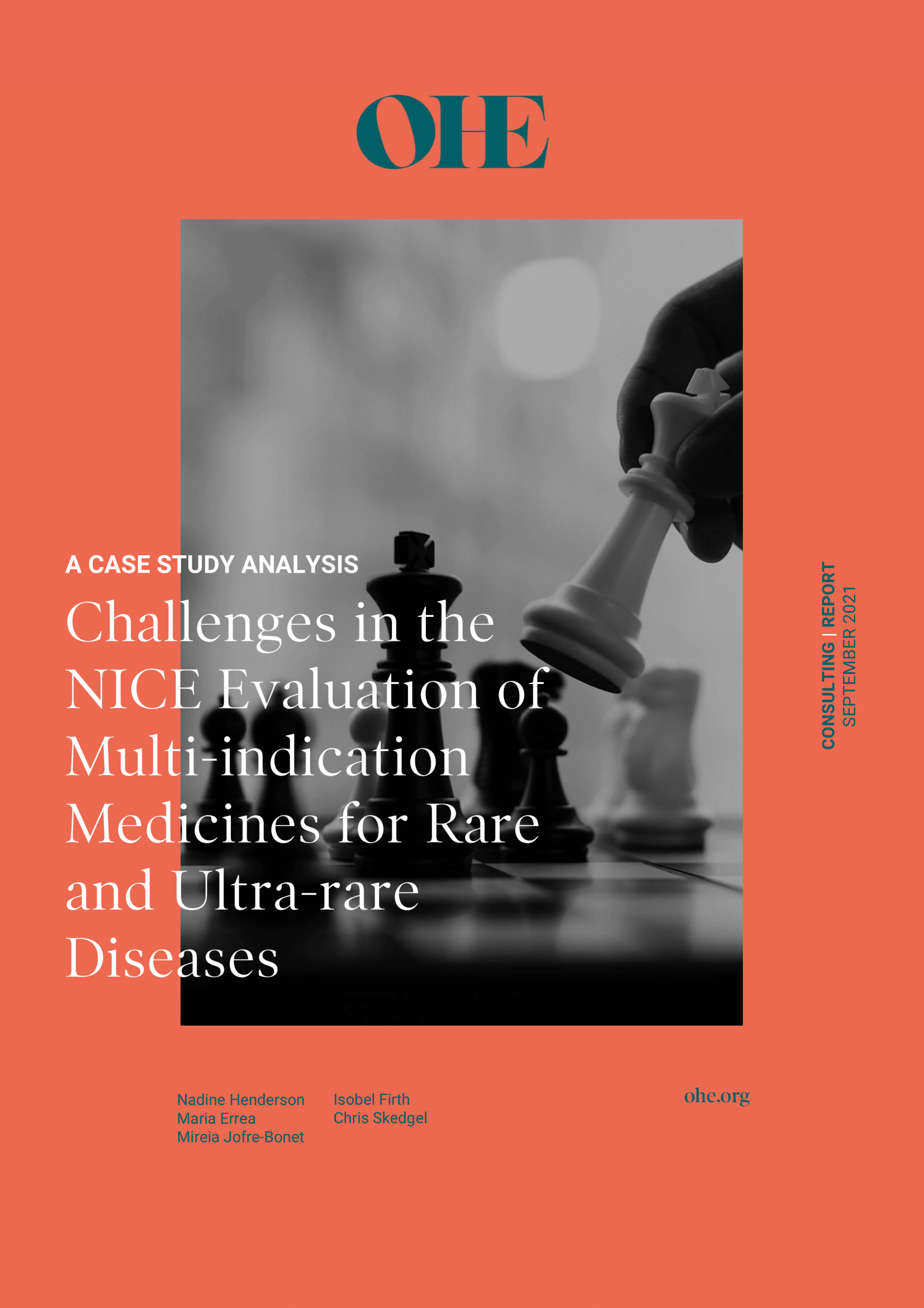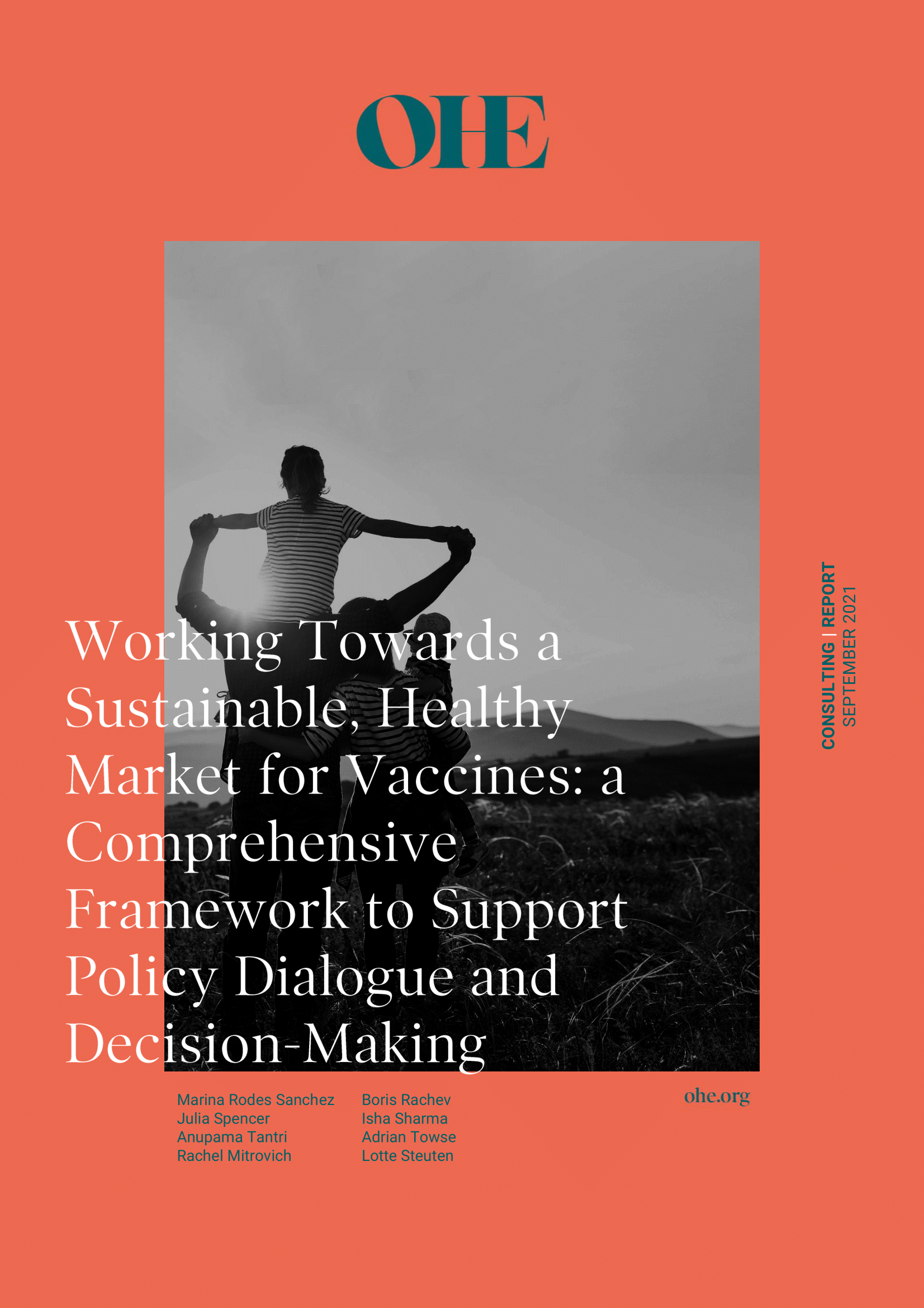Sign up to our newsletter Subscribe
The Value of Vaccines in Maintaining Health System Capacity in England

Sign up to our newsletter Subscribe



On Tuesday 28th June 2016 OHE held a workshop on the topic of surrogate endpoints as predictors of overall survival in oncology. The workshop was commissioned by the Pharmaceutical Oncology Initiative (POI) as part of a wider research project being undertaken by OHE.
A clinical endpoint is an aspect of a patient’s clinical or health status that is measured to assess the benefit or harm of a treatment. Overall survival (OS) is the gold standard endpoint for clinical trials assessing the efficacy of cancer treatments in terms of their effects in improving length of life. However, measuring OS requires a large number of patients and long follow-up periods. This considerably increases the cost of development and delays patients’ access to new cancer drugs.
In response to this problem, various surrogate endpoints have been used in place of OS. Surrogates have the advantage that they can be assessed earlier than OS and require smaller patient populations.
Progression free survival (PFS) is the most commonly used surrogate in cancer. Regulatory decision-makers, such as the EMA and FDA, have used PFS as the basis for marketing approval of some new therapies. Bodies such as NICE, that advise on which aspects of healthcare may be covered by national health insurance, are concerned with both the effectiveness and cost-effectiveness implications of the use of surrogate endpoints. There is increasing concern in the scientific community regarding the validity of PFS as a surrogate of OS.
On Tuesday 28th of June 2016, the OHE organised a workshop aimed at discussing the statistical and health economics issues around the current approaches to extrapolating from PFS to OS. The workshop was attended by a range of participants including academics, representatives of the pharmaceutical industry and NICE.
During the workshop, Professor Rod Taylor, from the University of Exeter Medical School, described the trade-off between getting much faster results and at lower cost using a surrogate endpoint, but at the expense of a less certain eventual outcome. In addition, Dr Oriana Ciani, Postdoctoral Research Fellow in the University of Exeter Medical School and Research Fellow of the Università Commerciale L. Bocconi in Milan, discussed the implications and challenges for regulators, payers and triallists of the issues surrounding the validation of surrogates.
OHE’s Dr Karla Hernandez-Villafuerte presented the preliminary results of a systematic review that she is undertaking to identify the principal weaknesses and gaps in current methods and approaches for validating PFS as a surrogate of OS. OHE’s Dr Alastair Fischer presented an outline of modelling work conducted by Prof Marc Buyse which attempts to determine which surrogate endpoints can be validated and which of several surrogates is estimated to be the best.
In general, presentations, discussions and the preliminary results of the OHE investigation suggest the need for standards for validating PFS as a surrogate of OS, as well as the need for clinical trial protocols that facilitate the use of PFS as a surrogate. Additionally, there was a consensus on the fact that the validity of the surrogates is affected by multiple factors such as cancer type, drug mechanism of action, phase of development, year of the trial, state of the disease.
The discussion is currently being followed up with an internet survey. In this survey, workshop participants are asked to summarise their conclusions from the workshop and describe future challenges in the validation of surrogates that should be considered. The results from the literature review, the workshop discussion as well as the posterior survey will be published by the OHE in the coming months.
For more information contact Karla Hernandez-Villafuerte at OHE.
An error has occurred, please try again later.
This website uses cookies so that we can provide you with the best user experience possible. Cookie information is stored in your browser and performs functions such as recognising you when you return to our website and helping our team to understand which sections of the website you find most interesting and useful.
Strictly Necessary Cookie should be enabled at all times so that we can save your preferences for cookie settings.
If you disable this cookie, we will not be able to save your preferences. This means that every time you visit this website you will need to enable or disable cookies again.
This website uses Google Analytics to collect anonymous information such as the number of visitors to the site, and the most popular pages.
Keeping this cookie enabled helps us to improve our website.
Please enable Strictly Necessary Cookies first so that we can save your preferences!